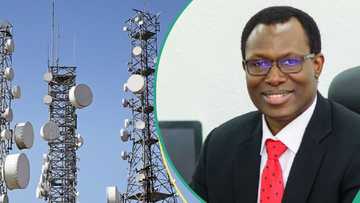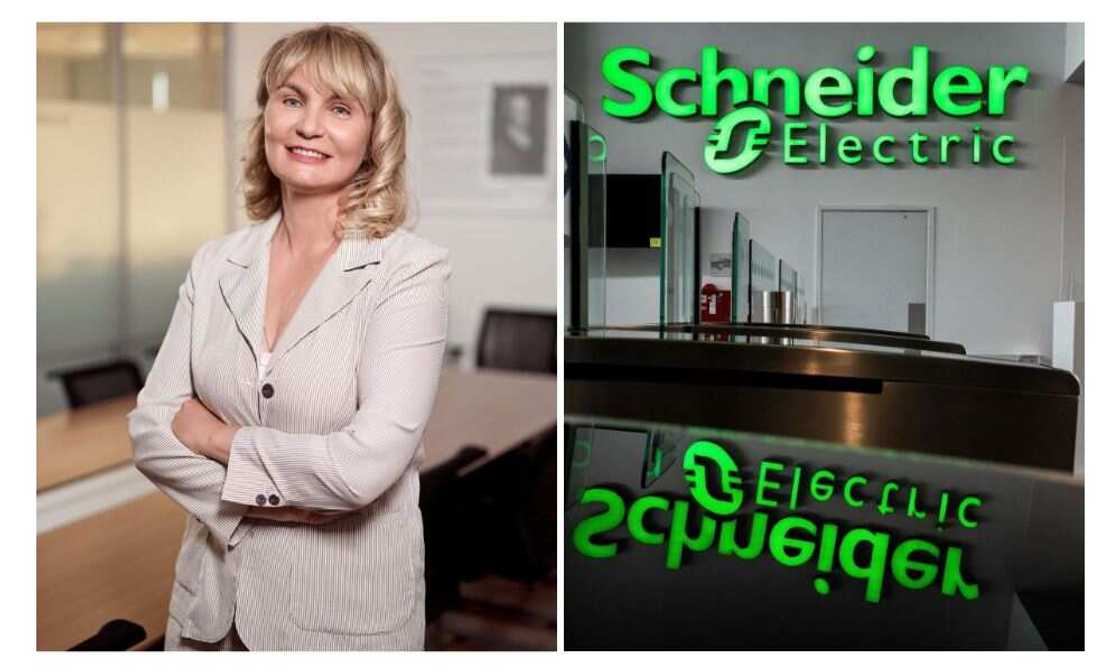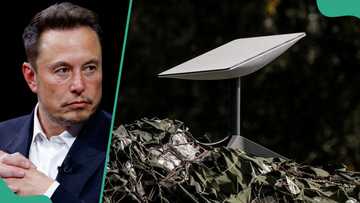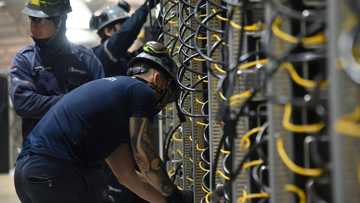APC's 40-Year Legacy: Why UPS Technology is More Crucial Than Ever
- Schneider Electric has described the future of UPS technology as critical to the future power supply
- The company disclosed that dependable power is essential for desktop PCs, data centres, and intricate manufacturing systems
- It quietly ensures that devices keep running during power outages, giving users time to save work and safely shut down equipment
Don't miss out! Join Legit.ng's Sports News channel on WhatsApp now!
Legit.ng’s Pascal Oparada has reported on tech, energy, stocks, investment and the economy for over a decade.
The IT industry is once again undergoing a profound transformation. With the rise of real-time data processing and the integration of generative AI into daily tasks across homes, offices, and manufacturing plants, the stakes are higher than ever.
Yet, amid all these advancements, one thing remains constant: the need for reliable power to keep everything running smoothly. Dependable power is essential for desktop PCs, data centres, and intricate manufacturing systems.

Read also
Creating conditions for sustainable, inclusive growth in Nigeria’s digital economy - Gbenga Adebayo

Source: Getty Images
This is where the uninterruptible power supply (UPS) becomes indispensable.
PAY ATTENTION: Сheck out news that is picked exactly for YOU ➡️ find the “Recommended for you” block on the home page and enjoy!
Often overlooked, the UPS plays a vital role in IT infrastructure. It quietly ensures that devices keep running during power outages, giving users time to save work and safely shut down equipment. Additionally, it shields devices from power fluctuations like surges and brownouts that can cause significant damage.
40 Years of Innovation
This year marks a significant milestone for APC, celebrating 40 years since introducing its first UPS in 1984. The initial model, the 750, utilized a lead-acid battery to provide surge protection and backup power for PCs, LANs, and workstations. However, its high development cost led to a steep price, limiting its success. The subsequent model, the 450AT+, was more affordable and compact, setting the foundation for APC’s future success with the Back-UPS series. Since then, APC has consistently innovated, making its UPS technology increasingly vital in today’s IT landscape. Recognizing the value of this technology, Schneider Electric acquired APC in 2007.
Today, with data centre growth projected to double by 2030, the demand for reliable power is more pressing than ever. Several vital trends highlight the growing need for resilient IT infrastructure supported by UPS technology.
AI Driving Data Center Demand
Adopting generative AI across industries, from healthcare to logistics, places unprecedented pressure on IT infrastructure. AI applications require massive data processing, increasing the demand for computing capacity and electrical power in data centres. Goldman Sachs predicts a 160% increase in data centre power demand by 2030. As AI becomes central to business operations, unplanned downtime due to power issues can have severe consequences. UPS technology mitigates this risk by ensuring a continuous power supply and preventing disruptions that could have life-threatening implications, such as healthcare or transportation.
The Sustainability Challenge
The growing power demands come when IT and data centre managers face increasing pressure to decarbonize operations. U.S. data centre power consumption is expected to double by 2030, prompting operators to seek solutions that balance power needs with sustainability goals. Modern UPS systems contribute to this effort by leveraging energy-efficient technology and materials, such as recycled plastics and metals. Additionally, some UPS models now allow for modular upgrades, reducing waste and extending the lifespan of equipment. Lithium-ion batteries, which last longer and require less maintenance than traditional lead-acid batteries, further enhance sustainability while supporting resilient infrastructure.
Accelerating Edge Computing
The demand for real-time data processing drives rapid growth in edge computing, where data processing occurs closer to the source. Worldwide spending on edge computing is expected to reach $232 billion by the end of 2024.
Edge infrastructures, often part of hybrid IT environments, are crucial for supporting critical applications, making them as important as large data centres.
UPS technology is essential for these sites, providing power protection and enabling remote monitoring and management to minimize downtime. The 2024 Uptime Institute survey indicates that power disruptions are the leading cause of outages, underscoring the importance of reliable UPS systems.
A Resilient Future with Schneider Electric
As the demands on IT infrastructure grow, data centres and IT managers can rely on trusted partners like Schneider Electric. With decades of experience in IT infrastructure solutions, Schneider Electric continues innovating and supporting resilience and sustainability. Schneider Electric collaborates with a global network of 150,000 partners to provide UPS solutions and related technologies, ensuring secure and reliable operations for customers worldwide.

Read also
Elon Musk makes another move to rival MTN, Glo, others after introducing low-cost mini starlink dish
Looking ahead, Schneider Electric remains committed to advancing eco-friendly technologies in response to the increasing frequency and duration of power outages. By prioritizing innovation, the company aims to deliver reliable, secure, and sustainable power solutions that enable organizations to thrive in a digital future shaped by generative AI and other cutting-edge applications.
Explore Schneider Electric’s 40-year innovation journey with resources to help organizations enhance IT infrastructure reliability in a connected world.
Schneider Electric projects AI disruption
Legit.ng earlier reported that in a recent white paper titled "The AI Disruption: Challenges and Guidance for Data Center Design," Schneider Electric delves into the crucial attributes and trends surrounding AI workloads.
The paper illuminates data centres' challenges and offers comprehensive guidance on addressing these issues in power, cooling, racks, and software management.
According to the white paper, the data centre industry is set to face significant tasks in 2024 as it adapts to the demands and harnesses the potential of AI.
PAY ATTENTION: Unlock the best of Legit.ng on Pinterest! Subscribe now and get your daily inspiration!
Source: Legit.ng




